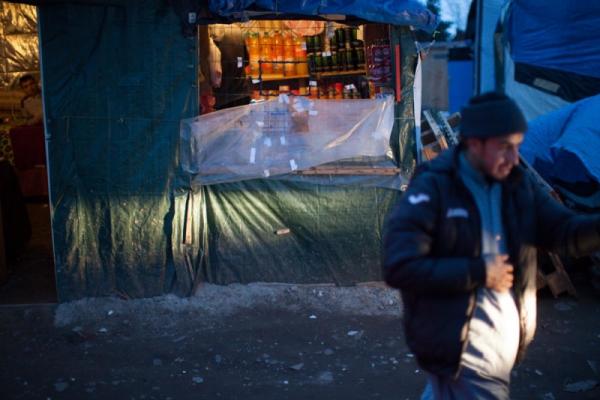Mar 30, 2016
This month, French authorities have been demolishing the 'Jungle,' a toxic wasteland on the edge of Calais. Formerly a landfill site four kilometers square, it is now populated by approximately 5,000 refugees pushed there over the last year. A remarkable community of 15 nationalities adhering to various faiths comprises the Jungle. Residents have formed a network of shops and restaurants which, along with hamams and barber shops, contribute to a micro-economy within the encampment. Community infrastructure now includes schools, mosques, churches, and clinics.
Read the Full Article

Already a subscriber? Login
